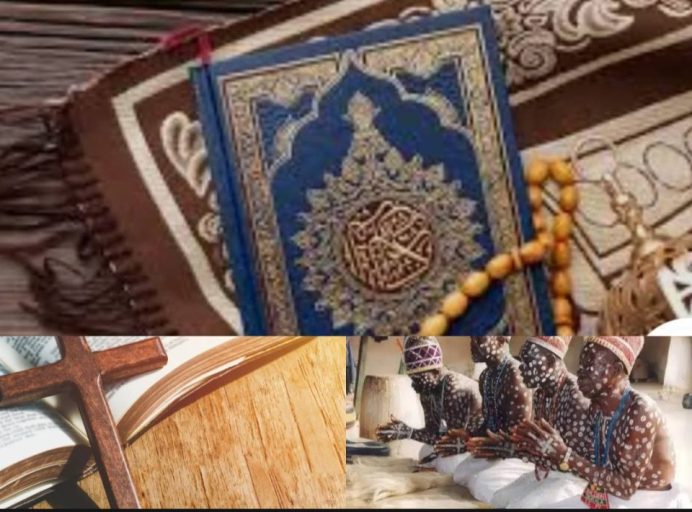The Yoruba people, one of the most culturally rich and historically significant ethnic groups in Africa, have long stood at the crossroads of tradition and modernity, spirituality and politics. In today’s Nigeria, the Yoruba spiritual landscape is a complex interplay of Isese (traditional religion), Christianity, and Islam—three forces shaping not just religious identity, but also political alignment, social cohesion, and the future of the Yoruba race.
Isese, the religion of some people in Yoruba, is experiencing a revival among cultural purists who to them, see it as the purest expression of Yoruba identity. Followers of Isese often assert that they are the original spiritual owners of the Yoruba worldview, with deities like Orunmila, Sango, and Osun representing values, cosmology, and a deep connection to nature and ancestry
Christianity, particularly Pentecostalism, has entrenched itself deeply into Yoruba life, often blending with politics. The rise of political Christianity in Yoruba land has created a scenario where some Christian leaders seek to define Yoruba identity along Christian lines. This group often sees Islam as a threat. As political power shifts, some of these Christian leaders attempt to dominate Yoruba political narratives—shaping education, governance, and cultural policy in favor of Christian norms.
Islam has a long-standing presence among the Yoruba. Yoruba Muslims have historically promoted tolerance, education, and community development.
However, in recent time, there’s been a growing push for the implementation of Sharia law in Yoruba-majority states as enshrined in Nigeria constitution. This has led to rising tensions, as Christians and traditionalists see this as a form of Islamization. They fear the loss of cultural freedom and a drift toward Northern-style governance which they detest most.
At the heart of this religious tension lies a bigger question: Who defines the Yoruba identity? Is it the Isese, the politically Christians, or the growing Muslim population who brought the first civilization to Yoruba land?
Mufti Media.



